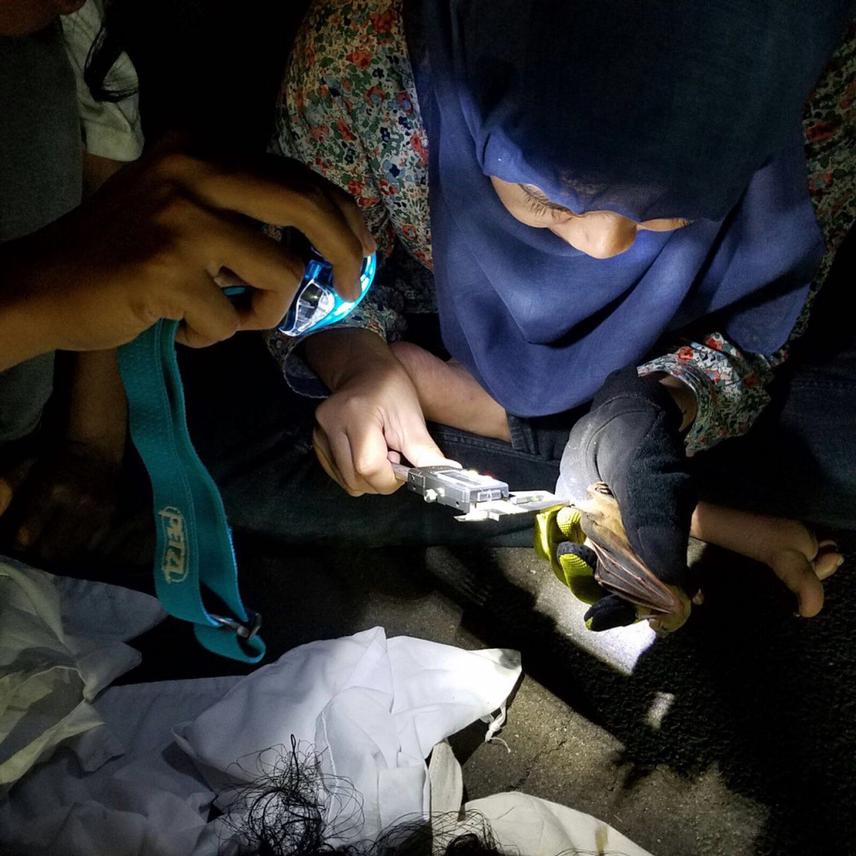Susan M. Tsang
Our project, BatCode, aims to improve on current biodiversity education by providing a portable DNA barcoding lab that functions in tropical climates under the unifying framework of Southeast Asian bats, an important but understudied group. BatCode will provide opportunities for capacity building for local students and generate preliminary data for local researchers to stimulate more in-depth studies in biodiversity, conservation, wildlife crimes, and more—all disciplines in Indonesia that currently have sparse genetic data.

In the field.
BatCode will provide an inquiry-based, active learning workshop to fill in an educational gap for Indonesian students due to lack of access to experts and resources. DNA barcoding is increasingly used as a teaching tool at the secondary and post-secondary levels in the Americas, and the lessons we have learned from teaching in under-served communities can be applied to barcoding workshops in Indonesia. Our focus on Southeast Asian bats acts as a unifying framework for potential projects to produce greater project accountability and continuity. The barcoding data can be utilized by local experts to stimulate more in-depth research projects on bats, something that is sorely needed in Indonesia. The workshop will be provide capacity building opportunities for local students regarding the use of genetic data in studies of conservation, biodiversity, wildlife crimes, and more.
Through a combination of teaching theoretical background knowledge and practical skills, we will guide students through barcoding projects that can have a real impact on biodiversity and conservation in Indonesia and fill in a significant gap in genetic data from Indonesia. Lectures will also highlight the importance of bats to the ecosystem and dispel negative myths to promote bat conservation. By providing students exposure and experience to molecular techniques, the workshop will better prepare them for participation in the international scientific community.
These student participants will then act as ambassadors to their home communities about the importance of bats to the health of forests and human society. Student ambassadors can overcome language and accessibility barriers facing external educators to promote success of conservation efforts in local communities. Ecosystem services from the forest that are valued by local communities can be highlighted, which can help increase community support for conservation efforts. This will help build the necessary community support essential to the success of any conservation activities in the long term. Additionally, we will collect assessment data to determine the effectiveness of conservation education.
Our first workshop will be conducted in Sulawesi, which exhibits one of the highest degrees of endemism in the world and contributes to Wallacea being recognized as a biodiversity hotspot. In the past decade, transmigration projects within Indonesia led to rapidly increasing human populations and intensifying deforestation and land conversion, all of which threaten Sulawesi’s native biota. Our second workshop will be at the University of Indonesia, West Java, where some of the best students from all over Indonesia study.